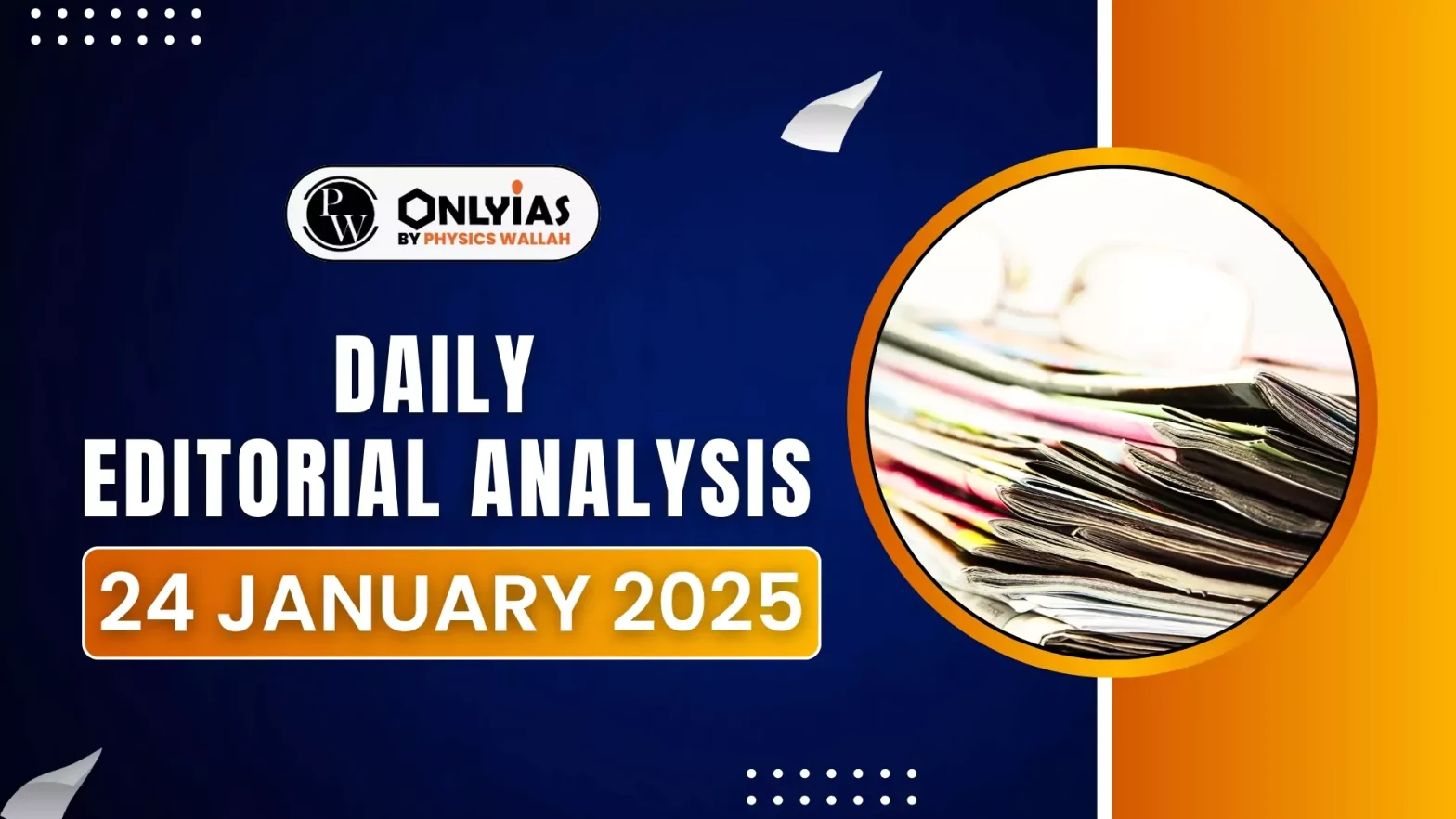Recently, a World Bank-appointed neutral expert has endorsed India’s position on resolving disputes with Pakistan regarding the Kishanganga and Ratle hydroelectric projects.
Indus Water Treaty
- About: The IWT was signed by India and Pakistan on September 19, 1960 to determine the distribution of the waters of the Indus and its tributaries.
- It was signed in Karachi by then Prime Minister Jawaharlal Nehru and then Pakistan President Ayub Khan after nine years of negotiations arranged by the World Bank.
Key Provisions of Indus Water Treaty
- River Allocation: Under the IWT, India enjoys “unrestricted use” of the three “Eastern Rivers” (Beas, Ravi, Sutlej), whereas Pakistan controls the three “Western Rivers” (Indus, Chenab, Jhelum).
- This, in effect, gives India roughly 30% and Pakistan 70% of the water carried by the Indus River System.
- Obligation: According to Article III (1) of the Treaty, “India is under obligation to let flow” waters of the Western Rivers to Pakistan.
Enroll now for UPSC Online Course
Disputes Around the Indus Waters Treaty (IWT)
- Pakistan’s Objections: Pakistan has raised objections to the design features of two hydroelectric projects in Jammu & Kashmir the Kishenganga HEP on the Kishenganga (tributary of Jhelum) and the Ratle HEP on the Chenab.
- Despite being “run-of-the-river” projects, Pakistan claims they violate the IWT.
- Pakistan alleges that the projects obstruct the natural flow of water, violating the Treaty.
- Request by Pakistan: In 2015 Pakistan requested the appointment of a Neutral Expert to examine its technical objections and in 2016 Pakistan withdrew this request unilaterally and proposed adjudication by the Permanent Court of Arbitration (PCA).
- India’s Position: India filed a separate request for the matter to be referred to a Neutral Expert, as per the graded mechanism outlined in the IWT.
- India refused to engage with the PCA, arguing it violated the IWT.
- Dispute Settlement Mechanism under IWT (Article IX):
- Level 1: Disputes are initially addressed by the Indus Commissioners of both countries.
- Level 2: If unresolved, the matter is referred to a World Bank-appointed Neutral Expert.
- Level 3: If necessary, the issue is escalated to the PCA in The Hague.
- Neutral Expert’s Focus Areas:
-
- Pondage Capacity: Whether the dams comply with the IWT’s limits.
- Turbine Intakes: Whether the design adheres to IWT rules.
- Dead Storage Level Outlets: Whether the outlets follow IWT guidelines.
- Gated Spillways: Whether their design aligns with IWT provisions.
- World Bank’s Dual Process: On October 13, 2022, the World Bank initiated two parallel processes, it appointed Michel Lino as the Neutral Expert and began PCA proceedings on Pakistan’s insistence.
- India boycotted PCA proceedings, calling them “Treaty-inconsistent”, while continuing with the Neutral Expert process.
Significance of the Neutral Expert’s Decision
- Neutral Expert’s Authority Affirmed: The Neutral Expert, Michel Lino, ruled on January 7 that he is competent to adjudicate the “Points of Difference” raised by India. This decision aligns with India’s argument that the issues fall “squarely and entirely” within Part I of Annexure F of the Indus Waters Treaty (IWT).
- Pakistan’s Position: Pakistan claimed the “Points of Difference” do not fall within the remit of the Neutral Expert, thereby taking the issue outside his jurisdiction.
- India’s Argument: India asserted that the Neutral Expert is “duty-bound” under the Treaty to rule on the merits of the differences.
- Process and Progress: The Neutral Expert held three meetings and conducted site visits to the Kishenganga and Ratle projects in June 2023.
- Following his decision, Lino will now hear both parties again before ruling on the merits of the differences.
- Parallel PCA Proceedings: In July 2023, the Permanent Court of Arbitration (PCA) also declared itself “competent” to consider the matter.
Way Forward
- Potential for Treaty Revision: India’s formal notices in 2023 and 2024 to review and amend the Treaty highlight the importance of addressing demographic shifts, clean energy objectives, environmental challenges, and the effects of cross-border terrorism.
- Updating Treaty Framework: Propose modifications to accommodate changing priorities, such as the impacts of climate change, increasing industrial and agricultural demands, and demographic trends, ensuring fair and sustainable water-sharing arrangements.
- Article XII (3) of the IWT: The Treaty provisions may be modified through a mutually agreed and duly ratified Treaty concluded between India and Pakistan.
Check Out UPSC CSE Books From PW Store
Conclusion
As the Treaty turns 65, its future will depend on whether both nations can find common ground or risk escalating tensions over water-sharing.
Ready to boost your UPSC 2025 preparation? Join PW’s UPSC online courses today!
![]() 24 Jan 2025
24 Jan 2025
